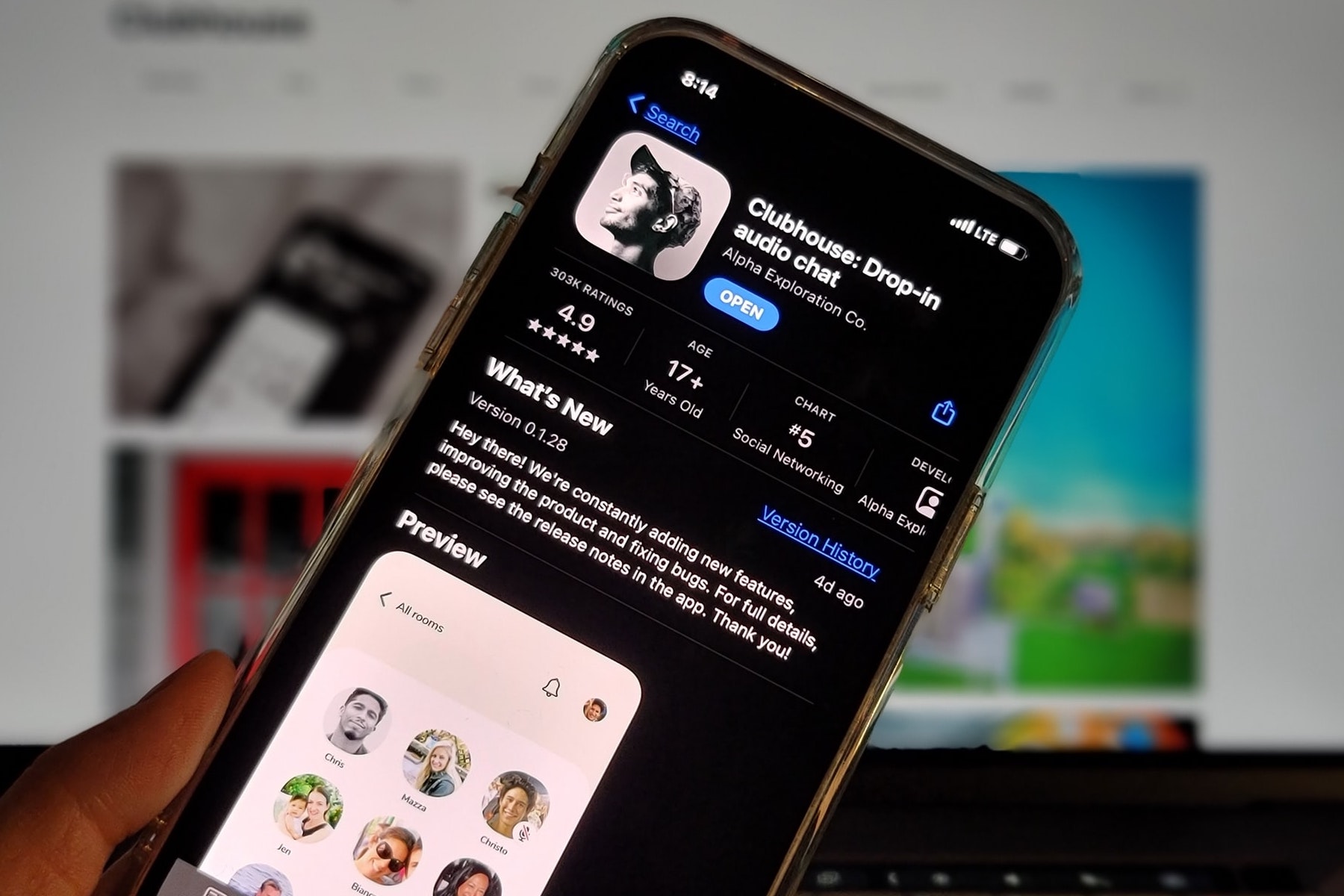Have you ever encountered an app where its number of users surged to nearly 13 million in the first year of its launch? Or maybe a social platform that requires an invitation for the sign-up process? What about one that allows you to listen to your favorite celebrities share their stories live on a “podcast”? If you haven’t experienced any of these occurrences but feel intrigued, I recommend you check out one of the most popular — if not the most — apps of 2021: Clubhouse.
Clubhouse is an invitation-only audio chat iPhone app that launched one year ago. It’s a social network app where you can select your interest groups and listen to the live audio communication within the groups. Once you enter a chat group, you can see the names and profile pictures of the speakers and the audience. Each chat room is closed and the group is disbanded after each conversation ends. During a meet-up, listeners can raise their hands to join the conversation once they gain approval from the hosts. The size of the chat room can range from a few individuals to an audience of 5,000.
Clubhouse has achieved remarkable success in gaining new users. At the end of last year, the seventh month of its launch, the number of registered users went up to 600,000; one month later, the app’s value unsurprisingly but unprecedentedly rose above $1 billion.
How does a private app achieve this level of success in such a short time? Most of you might say that people have been craving for connection since the pandemic, as long-time isolation has become the indispensable soil for its growth. I agree. However, beyond the social environment, I would like to discuss several interesting yet significant features of Clubhouse that led to its nearly unprecedented success.
Invitation-Only Feature
Unlike most other social networking platforms, users can only join Clubhouse at the invitation of an existing member. More importantly, the invitations are not unlimited for each existing member. The app creates a dynamic social structure where an existing member has the “privilege” to choose who they would like to give away their invitations to. In return, the invitee can feel the substantial weight and strong social value of the opportunity to join the platform simply because such an opportunity is both seemingly rare and relationship-bound.
After the first wave of members, people might’ve felt urged to share their invitations with their friends to validate and reinforce their relationship bonds. In an age where people have already been overwhelmed by the use of social media, the invitation-only nature of Clubhouse seems to promise more desirable and stimulating content because of the trust and prior positive interaction between the inviter and invitee.
Alongside the “rare resources sharing” relationship between Clubhouse members and invitees, the invitation-only feature of the app reinforces the communal identity that people might naturally demand in their daily lives. This socially constructed “privilege” is even becoming a purchasable luxury that was on sale for $23 — $61 on some e-commerce platforms in China —further promoting the app’s perceived value.
Facilitating Social Networking
The invitation-only feature, which uses the peripheral nature of human beings to inspire and sustain our interest, is merely a secondary reason as to why Clubhouse swiftly captured a large number of users. I see the philosophy of this app reflected in its design as the key determinant to its success, which fulfills a wide spectrum of social networking needs that promise a substantial market size.
Firstly, Clubhouse is an audio-only app. This eliminates the redundant yet important elements of in-person or face-to-face video meetings. In addition to the participants themselves, their clothing and surroundings are necessarily essential components that constitute the social environment and may be expected to meet certain norms.
In an audio-only setting, people can focus more on the conversation itself without these elements interfering. People can have more individual flexibility and consequently, become less constrained by the pressures of the social setting while still maintaining civility — unlike some anonymous users who have little to zero restraint about what they say, often seen on other social media platforms like Twitter.
Secondly, because of its audio-only nature, Clubhouse is similar to podcasts. However, the live nature of the app brings a more human element that bridges the distance between the sharer and audience and enriches the conversation. It also creates a strong sense of community when an audience sees others are present. The profile picture of the speakers further reinforces the aspects mentioned above while eliminating the redundant and possibly rigid invisible protocols of social networking.
The differentiation between the speakers and the audience creates the necessary sense of social role and identity in each particular conversation. It seems to provide a virtual podium and explicitly highlights the speakers to whoever is or may be participating in the conversation.
Lastly, the app’s simplicity also facilitates its popularity. After invited users complete the sign-up process, they can easily choose the types of groups they’re interested in joining and immerse themselves in a stimulating talk without being distracted by new posts or messages from other friends. Finally, the calming effect of the Clubhouse app’s color scheme strengthens one’s focus and further eliminates mind-wandering, which ultimately contributes to a higher level of user satisfaction.

















